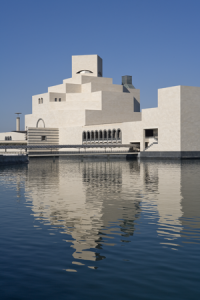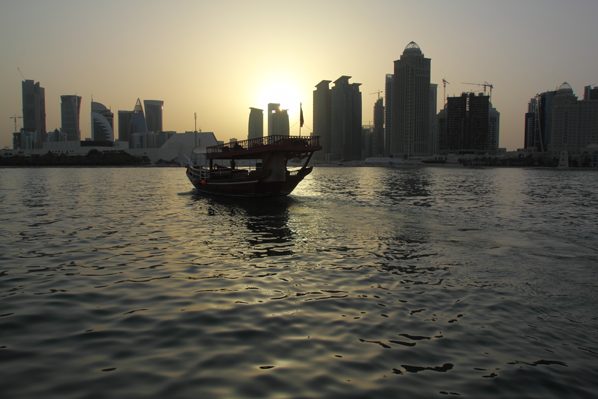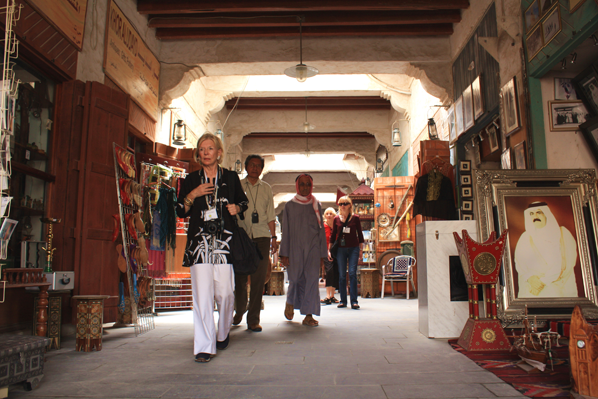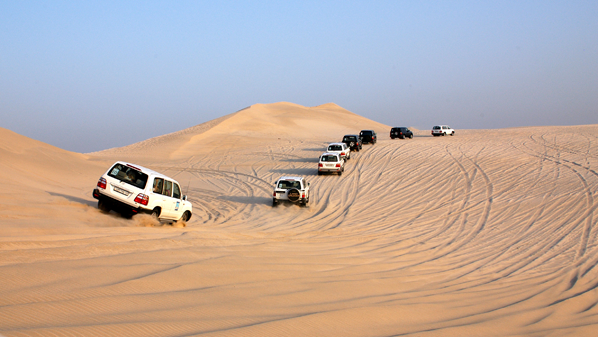Qatar lays claim to become cultural hub of the Middle East
 The Museum of Islamic Art is one of the many highlights of Doha
The Museum of Islamic Art is one of the many highlights of Doha With awe inspiring architecture, a collection of world beating museums, and a rapidly growing program of events and activities, Qatar is fast establishing itself as the cultural hub of the Middle East.
Many of the destination’s attractions are rooted in the culture and environment of the region.
With the Qatar Tourism Authority’s increased focus on education and entertainment to boost tourism, the nation is emerging as a hotspot for the arts.
The destination is already regarded as the World’s Leading Business Travel Destination by the World Travel Awards.
The most prominent of Qatar’s extensive collection of museums is the IM Pei designed Museum of Islamic Art, which opened in Doha in 2008.
Home to one of the world’s finest collections from this ancient civilization and with pieces dating back over 1,400 years, it is the jewel in the country’s cultural crown.
Recent developments at the museum’s waterfront site include the creation of the MIA park, a 68-acre public space dominated by a newly commissioned sculpture by Richard Serra, the artist’s first public work in the Middle East.

On the first Saturday of every month, the park is transformed into a traditional Bazaar, as 100 street vendors selling jewellery, arts and crafts put a modern twist on Qatar’s Souk tradition.
The Mathaf Arab Museum of Modern Art is another example of Qatar’s commitment to championing its indigenous artists and culture.
Housed in a former school building, its exhibitions and events celebrate art by Arab artists and offer an Arab perspective on international modern and contemporary art.
The museum is situated on the edge of Doha’s Education City, a 14 square kilometre purpose built area that is home to educational facilities for students of all ages and campuses of some of the world’s leading universities.
There are other projects in the pipeline to showcase Qatar’s growing collections of art, photography and historical artifacts.
The most notable of these is the ambitious and spectacular National Museum of Qatar. Designed by architect Jean Nouvel and due to open in 2014, the building and collection will embody the pride and traditions of the Qatari people.

Harking back to the rich history of trade in the region, Doha’s beautifully restored souks provide shoppers with the chance to barter and pick up bargains as has been done for centuries.
With small independent boutiques and Middle Eastern restaurants, they are a great place to find local treasures and snacks.
The popularity of the Souks among Qataris and tourists alike has attracted a glut of artists and musicians. Souk Waqif in particular has become a hotbed of creativity, with The Waqif Art Centre at its heart playing host to many local and regional art exhibitions.
Katara Cultural Village is Doha’s latest attraction and is home to many of the country’s artistic and cultural organizations, including the Qatar Philharmonic Orchestra and the Doha Tribeca International Film Festival.
Built under the instruction of HH Sheikh Hamad Bin Khalifa Al Thani, Emir of Qatar, the village was created to help position Qatar as an international cultural lighthouse through theatre, literature, art, music, conventions and exhibitions.
Among Katara’s array of attractions are an opera house, art galleries, top-class restaurants and a beach.

Outside of Doha and a visit to the remote North and West of the country offers first hand a glimpse into Qatar’s history.
Sites such as the mysterious Jassassiya Carvings, and the forts of Zekreet and Zubara are easily accessible and well worth a look.
For those seeking a truly Arabian experience a camel back safari camping in a luxury Bedouin tent in the country’s southern desert is hard to beat.
For something a little more contemporary, dune bashing is an adrenaline filled 4 x 4 ride up the impossibly steep dunes.
In addition to Qatar’s cultural pull, its coastline, year-round sun, and packed calendar of sporting events mean that the country has plenty for all manner of travellers.
With nearly 80 new hotels and 42 hotel apartments under construction, the hospitality sector is growing at a great rate.
However, Qatar’s positioning as the link between the Ancient Arabic Culture and the World’s modernity and development is ensuring that the country’s recreational offering remains very much in touch with its roots.

